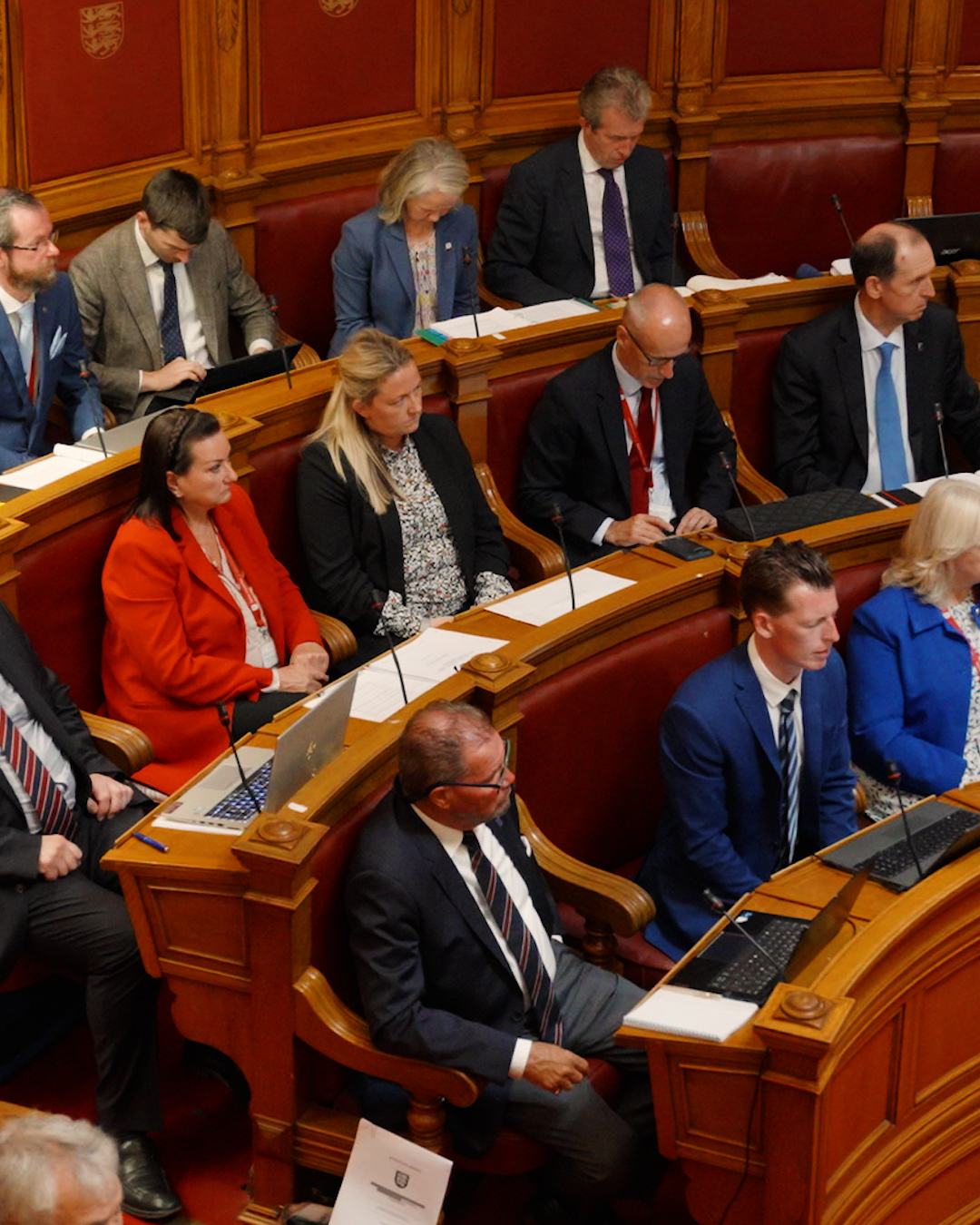This meeting is closed to the public
10:00am to 1:00pm
Agenda to follow

A States Meeting is held every three weeks, usually beginning on a Tuesday and continuing further into the week, or beyond, until all items of public business have been completed. States Members gather in the States Chamber to make appointments, ask and answer questions, and bring forward propositions for debate.
View all Propositions, Amendments and CommentsThe agenda for an upcoming States Meeting is set out in Order Papers.
The Principal Order Paper gives the full agenda for the States Meeting and is published three working days in advance of the Meeting.
This is followed by a Consolidated Order Paper, published either the day before the States Meeting or on the day itself, which includes details of any changes.
On occasion, one or more Supplementary Order Papers may be issued during the Meeting with details of any urgent new items and other changes. For example, Urgent Oral Questions.
Items on the Order Paper are usually taken during States Meetings in the order they are listed.
States Meetings open with roll call and prayers, immediately followed by any communications from the Presiding Officer, other announcements, and any appointments, for instance to a Panel or Committee.
Question Time is the next section of a Meeting, this includes:
The order in which Ministers face Oral Questions without Notice can be found on the Questions page.
If there are any Statements to be made, these are heard after Question Time.
.png?width=640)
The Assembly then moves on to Public Business, where it discusses and votes on the propositions (including any amendments) that have been lodged for debate during the Meeting.
The Assembly usually adjourns for lunch around 12.15pm and reconvenes at 2.15pm. If the business listed on the Order Paper is not completed by 5.30pm, the Assembly usually adjourns for the evening and resumes its meeting at 9.30am the following morning.
This meeting is closed to the public
10:00am to 1:00pm
Agenda to follow
This meeting is closed to the public
10:00am to 1:00pm
Agenda to follow
A proposition (sometimes called a projet) is a debate topic.
Propositions aim to encourage debate on an issue and are set out so that States Members can decide whether to vote for or against it. Propositions present legislation and policies for approval by the Assembly, or request action to be taken, most often by the Government or an individual Minister.
All propositions must be lodged, which means they are published and circulated by the States Greffe. Each proposition has a minimum lodging period, which means the length of time it should be published before the debate can take place. The minimum lodging period depends on the nature of proposition and who lodged it. Minimum lodging periods are determined by Standing Orders although States Members can reduce the minimum lodging period for a proposition if they consider it to be in the public interest to debate the proposition urgently.
All States Members are able to lodge propositions for debate. Every proposition is accompanied by an estimate of the financial and staff implications and a report that explains what is proposed and provides background information, including statistics.
An amendment is a proposed change to the idea or action put forward in a proposition (or a proposed change to another amendment).
Like propositions, amendments must be lodged, which means they are published and circulated by the States Greffe in advance of a debate.
Amendments are also debated and voted upon by the States Assembly.
All propositions and amendments are voted on by Members during States Meetings. You can find out how the elected representatives from your constituency voted on the issues that matter to you.